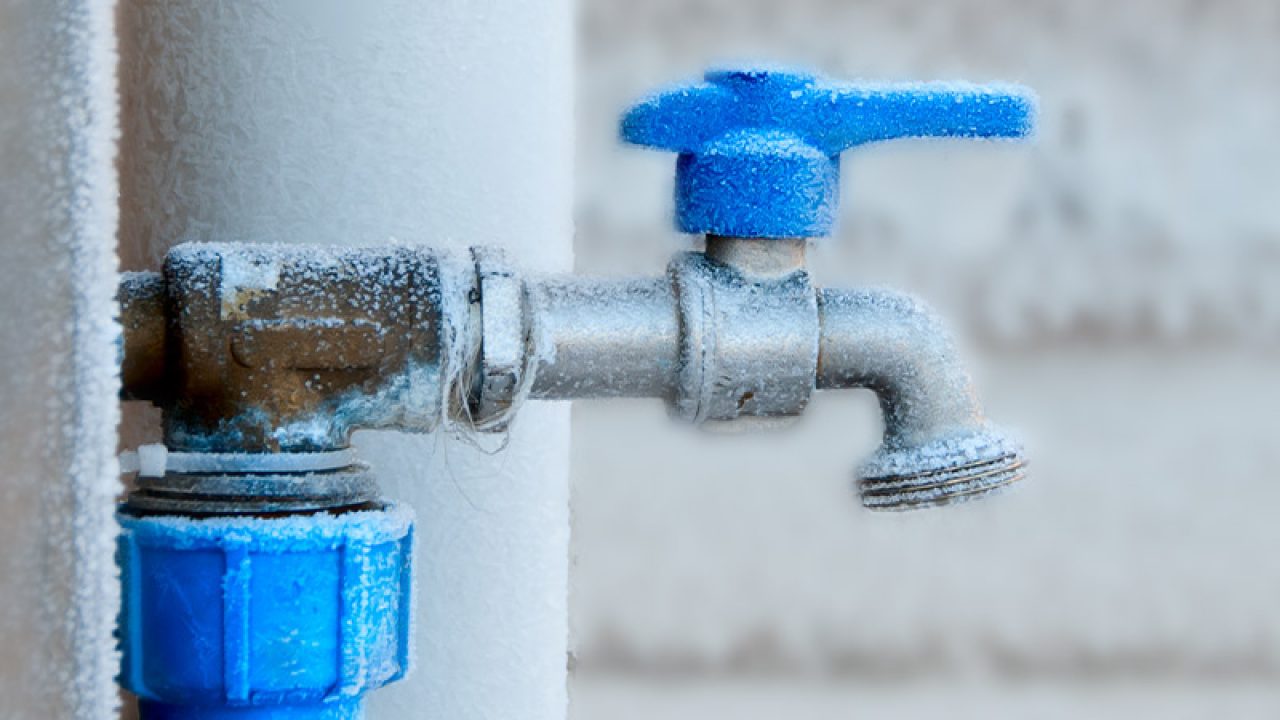Crucial Advice for Preventing Frozen Plumbing in Cold Weather Seasons
Crucial Advice for Preventing Frozen Plumbing in Cold Weather Seasons
Blog Article
In this article below you can find lots of decent insights pertaining to Helpful Tips to Prevent Frozen Pipes this Winter.
:strip_icc()/snow-outdoor-faucet-pipes-4af65d1e5e904fb1aa7bf74071fe5d89.jpg)
Winter can ruin your pipes, especially by freezing pipes. Right here's how to avoid it from taking place and what to do if it does.
Introduction
As temperatures decrease, the danger of frozen pipes increases, potentially causing pricey repair work and water damage. Recognizing exactly how to prevent icy pipelines is critical for property owners in cold climates.
Understanding Frozen Pipes
What causes pipelines to ice up?
Pipelines ice up when revealed to temperature levels listed below 32 ° F (0 ° C) for expanded durations. As water inside the pipes freezes, it expands, taxing the pipeline walls and potentially causing them to break.
Dangers and damages
Frozen pipelines can cause supply of water disruptions, residential or commercial property damage, and costly repair work. Ruptured pipes can flooding homes and trigger extensive architectural damage.
Indicators of Frozen Piping
Recognizing frozen pipes early can stop them from breaking.
Just how to recognize icy pipelines
Try to find reduced water flow from faucets, unusual smells or sounds from pipelines, and visible frost on exposed pipelines.
Avoidance Tips
Protecting susceptible pipes
Cover pipelines in insulation sleeves or use heat tape to shield them from freezing temperature levels. Focus on pipelines in unheated or exterior areas of the home.
Home heating techniques
Keep indoor spaces adequately warmed, especially locations with plumbing. Open up cabinet doors to permit warm air to flow around pipes under sinks.
Securing Outdoor Pipes
Garden tubes and outdoor taps
Disconnect and drain pipes garden tubes prior to winter months. Mount frost-proof faucets or cover exterior faucets with shielded caps.
What to Do If Your Pipes Freeze
Immediate activities to take
If you think frozen pipes, maintain faucets open to eliminate pressure as the ice thaws. Use a hairdryer or towels soaked in hot water to thaw pipelines gradually.
Long-Term Solutions
Structural adjustments
Think about rerouting pipelines away from exterior walls or unheated areas. Add additional insulation to attics, basements, and crawl spaces.
Upgrading insulation
Invest in top quality insulation for pipes, attic rooms, and wall surfaces. Appropriate insulation assists preserve consistent temperatures and lowers the threat of frozen pipes.
Verdict
Protecting against icy pipes calls for aggressive procedures and quick responses. By recognizing the causes, indicators, and safety nets, property owners can protect their pipes during winter.
Helpful Tips to Prevent Frozen Pipes this Winter
UNDERSTANDING THE BASICS: WHY PIPES FREEZE AND WHY IT’S A PROBLEM
Water freezing inside pipes is common during the winter months, but understanding why pipes freeze, and the potential problems it can cause is crucial in preventing such incidents. This section will delve into the basics of why pipes freeze and the associated problems that may arise.
THE SCIENCE BEHIND FROZEN PIPES
When water reaches freezing temperatures, it undergoes a physical transformation and solidifies into ice. This expansion of water as it freezes is the primary reason pipes can burst. As the water inside the pipe freezes, it expands, creating immense pressure on the walls. If the pressure becomes too great, the pipe can crack or rupture, leading to leaks and water damage.
FACTORS THAT CONTRIBUTE TO PIPE FREEZING
Low Temperatures: Extremely cold weather, especially below freezing, increases the risk of pipes freezing. Uninsulated or Poorly Insulated Pipes: Pipes located in unheated areas, such as basements, crawl spaces, or attics, are more prone to freezing. Insufficient insulation or lack of insulation altogether exacerbates the problem. Exterior Wall Exposure: Pipes running along exterior walls are susceptible to freezing as they encounter colder temperatures outside. Lack of Heating or Temperature Regulation: Inadequate heating or inconsistent temperature control in your home can contribute to frozen pipes. PROBLEMS CAUSED BY FROZEN PIPES
- Pipe Bursting: As mentioned earlier, the expansion of water as it freezes can cause pipes to burst, resulting in significant water damage.
- Water Damage: When pipes burst, it can lead to flooding and water damage to your property, including walls, ceilings, flooring, and personal belongings.
- Structural Damage: Prolonged exposure to water from burst pipes can compromise the structural integrity of your home, leading to costly repairs.
- Mold and Mildew Growth: Excess moisture from water damage can create a favorable environment for mold and mildew growth, posing health risks to occupants.
- Disrupted Water Supply: Frozen pipes can also result in a complete or partial loss of water supply until the issue is resolved.
WHY CERTAIN PIPES ARE MORE PRONE TO FREEZING
- Location: Pipes located in unheated or poorly insulated areas, such as basements, crawl spaces, attics, or exterior walls, are at higher risk of freezing.
- Exterior Pipes: Outdoor pipes, such as those used for irrigation or exposed plumbing, are particularly vulnerable to freezing as they are directly exposed to the elements.
- Supply Lines: Pipes that carry water from the main water supply into your home, including the main water line, are critical to protect as freezing in these lines can affect your entire plumbing system.
- Underground Pipes: Pipes buried underground, such as those connected to sprinkler systems or outdoor faucets, can be susceptible to freezing if not properly insulated.
https://busybusy.com/blog/helpful-tips-to-prevent-frozen-pipes-this-winter/

As a devoted person who reads on How to prepare your home plumbing for winter weather, I think sharing that excerpt was essential. Are you aware of somebody else who is in the market for the niche? Take a moment to promote it. Many thanks for taking the time to read it.
Schedule Service Report this page